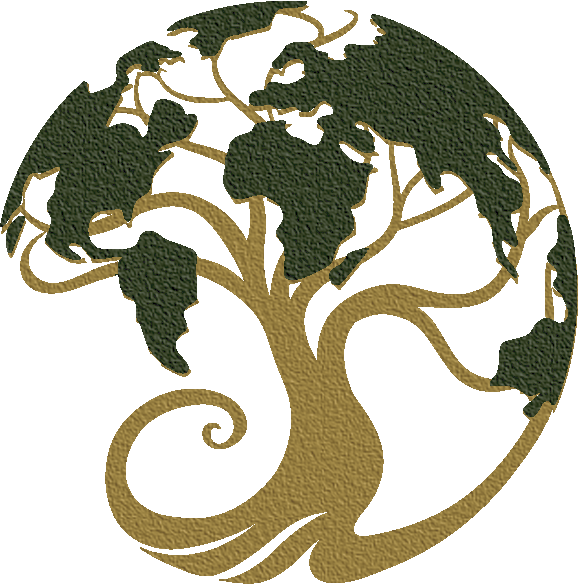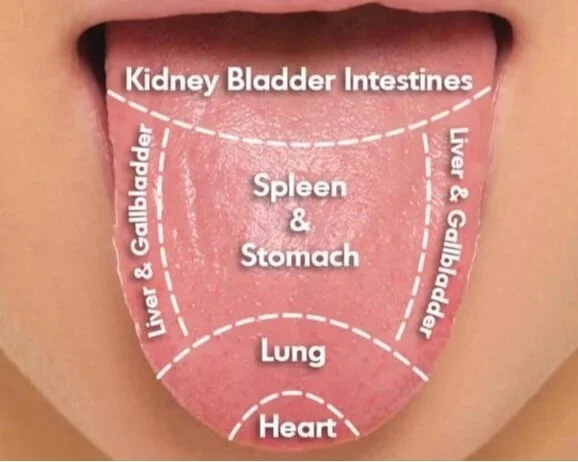
Ayurvedic Tongue Diagnosis:
Correspondence Course
Ayurvedic Tongue Diagnosis
“The map of the tongue is not just anatomical, it is emotional, elemental, and energetic.” — Dr. Vasant Lad
A practical course in reading the body’s inner landscape. Rooted in ancient wisdom and refined through centuries of use, this study teaches you to see the tongue as a living map of vitality, balance, and disharmony. With clear methods and practical applications, this course equips both practitioners and laypeople with an accessible diagnostic tool that offers immediate insight.
Course Overview
In Ayurveda, the tongue is seen as a reflection of the entire body—an extension of the digestive tract, the nervous system, the emotional body, and the elemental terrain. Each groove, colour, and coating reveals real-time information about health, vitality, and imbalance.
Tongue diagnosis provides a simple yet profound method for identifying patterns before they become deeply rooted. It can reveal the state of digestion, levels of vitality in the blood, areas of toxicity, and the progression or regression of imbalances. With a high degree of accuracy, it serves as both an immediate assessment tool and a guide for long-term care.
What You’ll Experience
▸ A fast and accessible assessment method requiring no equipment
▸ Practical techniques for identifying early signs of imbalance
▸ Guidance in using Ayurvedic principles of diet and herbs for treatment protocols
▸ Skills for recognizing elemental qualities—heat, cold, dryness, dampness, and toxicity
▸ A reliable diagnostic system useful for practitioners and personal well-being
▸ Integration of purification, regeneration, and transformation practices into daily life
Certification
Students who complete the course and its lessons will be acknowledged with a certificate of completion in Ayurvedic Tongue Diagnosis. Graduates carry both the knowledge and lived experience of the teachings, serving as authentic guides for those seeking greater well-being.
The Benefits
Easy-to-learn method for both practitioners and beginners
Offers up to 80% accuracy before lab tests return results
Provides immediate feedback on dietary and lifestyle changes
Strengthens awareness of the relationship between digestion, vitality, and overall wellness
Your Journey Awaits
Ayurvedic Tongue Diagnosis is an empowering pathway into the subtle language of the body. By learning to read this living map, you develop skills to support yourself and others in cultivating balance, clarity, and vitality.
“We can’t talk about our health without understanding our place in our environment because to fulfill our potential, we must live in the context of our surroundings.”
“We have to know our place in the ecosystem of which we are a part, and this means living ‘consciously’: being aware of nature and how it affects us and how we, in turn, affect nature.”
~Sebastian Pole
Curriculum
Part I
The Beginning
Lesson 1 – Introduction
An Overview: Tongue Diagnosis
What is Ayurveda?
The Fundamental Principles
Signs of Health
The Benefits Of Ayurvedic Tongue Diagnosis
Ayurvedic & Chinese Systems in Comparison
Part II
The Seed
Lesson 2 – The Constitution: Your Inherited Genetic Blueprint
The Constitution: The Seed
History of Constitutional Medicine
What is Ayurvedic Constitutional Medicine
Advantages of Ayurvedic Medicine
Constitutional Nature
Inner Ecology & Outer Ecology
Understanding Your Constitution & Your Current Condition
The Twenty Attributes
Lesson 3 – The Three Doshas
Attributes of the Three Doshas
Doshas & Their Location in the Body
Understanding the Doshas
Functions of Vata, Pitta, Kapha
Effects of Vata, Pitta, Kapha
Characteristics of Vata, Pitta and Kapha Types
Signs of Vata, Pitta and Kapha Imbalance
The Ten Constitutional Types
Sites of the Doshas
The Fivefold Division
Causes of Constitutional Imbalance
Prana, Tejas & Ojas
The Sattvic Diet
Part III
The Terrain
Lesson 4 – The Elements
The Five Elements
The Terrain: An Introduction
The Elements in Life
The Five Elements & the Gunas
Elemental Questionnaire
The Elements & the Six Tastes
Lesson 5 – The Seven Dhatus
Malas: Waste Products
The Energy Channels: Srotas
Part IV
The Fire
Lesson 6 – Digestion: The Cornerstone of Health
The Fire
Agni: The Digestive Fire
The Four Varieties of Agni
Agni Sources
Enzymes & Agni
Rekindling Your Digestive Fire
Stoking Your Fire: An Agni Program
Lesson 7 – Ama & Disease
Ama Signs
The Four Main Causes of Ama
Ama & the Dhatus
Evaluating Your Ama Level
Analysis of Ama Accumulation
Ayurvedic Dhatus Balancing Recommendations
Power of the Sun
Part V
The Diagnosis
Lesson 8 – Tongue & The Taste Buds
Taste Fundamentals
Taste Buds
The Six Tastes
Tastes & the Elements
Lesson 9 – Ayurvedic Tongue Diagnosis
History of Tongue Diagnosis
The Tongue Maps
The Relationship of the Tongue to the Body
Topography of the Tongue
Tongue Diagnosis: A 4-Step Procedure
The Healthy Vibrant Tongue
Constitutional Tongue Diagnosis
Tongue Diagnosis & the Body Organs
Other Tongue Signs
Constitutional Tongue Examination
The primary factors to observe, they are:
Body Color & Tongue Spirit
The body or size, shape and movement of the Tongue
The Tongue Coating
The amount of moisture in the Tongue
Tongue Diagnosis Signs
Tongue Diagnosis: An Overview
Comparative Clinical Significance in Ayurveda, TCM & Western Medicine
A Tongue Diary
Salvia pH Testing
Part VI
The Nourishment
Lesson 10 – Nourishing Wisdom
The Nourishment
The Six Stages of Digestion
The Process of Digestive Phases
The Psychobiology of Chewing
Ayurvedic Dietary Suggestions
Life Force in Food
Ayurvedic Food Concepts in Food Combining
Tongue Cleaning
Acid-Alkaline Balance
Fasting & Purification Practices
Rasayana Therapy
Lesson 11 – The Six Healing Tastes
The Essential Aspects of the Healing Tastes
The Significance of Tastes & Digestion
The Effect of Tastes on the Dosha
The Six Tastes in Nature
Tastes & Energy & Food
The Six Tastes & their Values
Adaptation of Seasonal & Daily Regime
The Six Tastes & Constitution
Tastes & Emotions
The Six Tastes & the Mind
Tastes, Intoxicants & the Mind
A Happy Home Recipe
Lesson 12 – The Sattvic Diet
Food, Prana & Consciousness
The Optimal Sattvic Diet
Original Nourishment
A Sattvic Live-Food Approach
Nature’s Foods vs Denatured Foods
The Seven Keys for Determining the Quality of Food
Peace through a Sattvic Diet
Relationship of Sattvic, Rajasic & Tamasic Foods
Food Plan for Vata, Pitta, Kapha
Vegetarian Facts
Part VII
The Conclusion
Lesson 13 – Constitutional Case Studies
A Case of Vata Imbalance
A Case of Pitta Imbalance
A Case of Kapha Imbalance
An Ayurvedic Case Study: Pitta Prakruti Woman with Insomnia & Vata Vikruti
Lesson 14 – Latest Updates & Research
Constitutional Questionnaires & Diagnostic Worksheets
Glossary
Bibliography
Index
Advanced Written Thesis, Research & One-on-One Sessions
The Complete Correspondence Course Material
The Advanced part of the course involves you doing a Research Thesis
One-on-One Sessions with Shantree Kacera
“A fundamental Ayurvedic philosophy is that
food is medicine, and medicine is food.”
An Ayurvedic proverb is
“When diet is wrong, medicine is of no use;
when the diet is correct, medicine is no need.”
Ayurvedic Tongue Map
There are numerous Tongue Diagnosis maps. Here is one that is thorough and accurate. This map is used in Ayurveda tongue diagnosis to assess one's overall health and pinpoint specific areas of concern. For example, a white coating present on the back of your tongue, near your tonsils, indicates the presence of ama (toxins) in your colon. The tongue begins the digestive tract, which lumbers on for another 30 feet or so. Since we cannot see much beyond the mouth without some invasive diagnostics, a quick look at the tongue can tell much about the health of your inner digestive lining and its function.
Functions of Healthy Inner Digestive Skin
Hosts trillions of beneficial microbes
Where 95% of serotonin for mood health is derived
Where 80% of the immune system is found
Protective barrier to ward off environmental toxins
Delivery of all vitamins, minerals, and nutrients
Regulates genetic and epigenetic changes to the human genome
Beginning of lymphatic circulation
The main driver of detoxification18
Creates an environment for the manufacturing of vitamins, hormones, and neurotransmitters
The course was compiled and written in response to an excellent opportunity for genuinely preventative medicine. In fourteen lessons, you will explore directly with instructor/author Shantree Kacera the unique synthesis of Western and Eastern Protocols in Constitutional Medicine. The course content comprises three sections: theory, diagnosis and body systems.
Tongue diagnosis is a vital instrument used in Ayurvedic Medicine to assess a patient’s current health and provide a basis for prognosis. It also informs the practitioner about the underlying challenges of the patient’s constitution. The tongue gives accurate information about the state of Prana and blood, disease progression and regression, degree of heat and cold, and the depth or penetration of a pathogenic imbalance. This course is taught by Walter ‘Shantree’ Kacera, bringing the practitioner a vital and flexible resource for those wishing to integrate tongue diagnosis into their private practice.
For the student, it is a precious and essential aid. The work is designed with both the beginner and practitioner in mind and comes with fundamentals supported by slide presentations of sample clinical indicators.
Level I: Constitutional Tongue Diagnosis
Understanding the Constitution
The Benefits of Tongue Diagnosis
History of Tongue Diagnosis
Fundamental Concepts & Basic Methods of Tongue Diagnosis
An Ayurvedic Approach to Tongue Diagnosis
Level II: Practical Application of Tongue Diagnosis
Tongue Signs: A Visual Presentation of the Internal Organs – The Principles in Tongue Diagnosis
Tongue Spirit & Body Color
Tongue Body Shape
Tongue Coating
Tongue Diagnosis in the Clinic
Level III – Advanced Tongue Diagnosis
Using tongue diagnosis in emotional problems
Tongue diagnosis & nutritional and herbal therapy (The Healing Tastes)
Unique Tongue Signs & Considerations regarding tongue diagnosis in children
Changes in the Tongue – Following Treatment (Case Studies before & after presentations)
*A special section will cover the traditional principles governing the identification of disease patterns and their relationship to tongue characteristics.
Up-to-date research on Saliva Testing for Acid-Alkaline Balance
Study Guidelines
Read each lesson at least three times before answering the questions at the end.
Study the charts carefully.
Answering the Homework Lessons
This course is divided into seven sections with a total of 14 chapters. Each section has study questions the student should answer e to ensure they have learned the chapter’s main points. Not all the material in each chapter has equal weight, so what is more significant will be evident from the questions. Not all the answers are found in the course textbook material. Still, they may require additional thinking because the course encourages the development of creative intelligence and not just looking up answers in a book. If you cannot find the answer, see if you can discover a solution to it through your creative thinking based on the fundamental teachings of this course. After completing the questions in detail to the best of your ability, please return them to us. This course is meant to be thorough and engaging, to teach the foundation and is not intended to be easy.
Writing out the answers will help you learn the material more thoroughly. You may refer to the text when completing the questions.
Ask questions. You may send in your questions with your exam questions. We invite your comments, favourite herbal recipes, and suggestions.
Please write your name and address on page one at the top of your exam questions.
If possible, please type your answers.
One of the specialties of these lessons is the personal attention given to your questions and homework.
Goals for the Course
The study course aims to provide the essential background of Constitutional Tongue Diagnosis Medicine valuable knowledge for all individuals in the Natural Healing Arts. The main topics include philosophy, psychology, movement therapy, elemental medicine, diagnosis and treatment methods (including herbalism and nutritional medicine, etc. This course provides the fundamental knowledge necessary for pursuing Constitutional Tongue Diagnosis Medicine. Once the students have completed the system, they can better understand human nature and the power of healing.
Format for the Course
The Constitutional Tongue Diagnosis Course consists of a series of lessons divided into seven sections. Each lesson is designed to cover a significant topic and will require about two or three sittings. Some may be more difficult, but all lessons are not equally easy or difficult. They are divided more by topic than by the time it may take to do them. One can take a lesson a week or as many as one can adequately assimilate.
It is preferred that the student not go on to later lessons until the earlier ones have been fully understood. There is no time limitation to the course. Each individual can go at their own pace at whatever time may allow. It is a good idea to set up a study schedule and attend to it regularly. Completing the reading assignments and answering the lessons may take 10-20 hours a week. More or less time may be necessary to fully assimilate all the material depending upon the student’s capacity, interest and background. If you desire to receive a Certificate of Completion, all of these lesson questions, projects and assignments must be completed and corrected by us.
Structure of the Course
The course comes in three sections.
Part I. Background and Philosophy in Constitutional Tongue Diagnosis (The primary language of reading the tongue)
Part II. Constitutional Analysis, Practical Tongue Diagnosis Techniques (Basic methodology)
Part III. Advanced Tongue Diagnosis, Treatment Protocols in Diet, Herbs, Oils, Fasting and purification Techniques, etc. (Primary treatment methods)
Textbooks & Charts for the Course
Ayurvedic Tongue Diagnosis Book (Shantree Kacera, D.N., Ph.D.)
Tongue Diagnosis Charts (Shantree Kacera, D.N., Ph.D.)
The Healing Tastes Charts (Shantree Kacera, D.N., Ph.D.)
Ayurveda: The Science of Self-Healing (Dr. Vasant Lad)
Ayurvedic Healing: A Comprehensive Healing (Dr. David Frawley)
Conscious Living Manual: The Sevenfold Path to Peace, Walter ‘Shantree’ Kacera, D.N., Ph.D. & Lorenna Bousquet-Kacera, 2002
Herbal Energetics Chart (Dr. Frawley, Lotus Press, 1986)
http://www.healthyyouradio.com/tag/shantree-kacera/
Time Completion
You may complete these lessons on your schedule. But to utilize them to their fullest, we recommend you set up a scheduled time to do each lesson; one evening a week or an afternoon on the weekends will keep your momentum going. The average time to complete the course is about one year. Some students have completed the material in 6 months, while others may take a few years. We do ask that you complete the course in two years. After two years, if the student fails to complete the course within the allotted period, the time-extension fee is $100 for each additional year.
Certificate
Students who complete the lessons and homework will receive a beautiful Ayurvedic Tongue Diagnosis Certificate. The Certificate awarded states that you are acknowledged for conducting a thorough, in-depth study and understanding of Constitutional Ayurvedic Medicine. The reputation of this course is outstanding and is recognized as superior among other professional natural health practitioners, wholistic schools, and natural healing centers.
Lessons 1-14 & Beautifully Designed Course Binder
The Constitutional Tongue Diagnosis Correspondence Course comes in a specially designed binder. The binder makes keeping your lessons, homework, and other course material easy. The binder will be sent out as soon as we receive your tuition.
PART I (The Correspondence Course) Is the home study part of the course. Study the material and do the lessons at your own pace. Send in the lessons through postal mail or email. We’ll check your lessons, comment, and give you feedback on your progress.
PART II (The Advanced Study & Research) Thesis Project allows you to dive deeper into the teachings. Choose an area of study you feel particularly drawn to in the course that sparks your passion, invites your curiosity, and beckons you to explore. Write a 5,000-word thesis and conduct a research project to be submitted within the course study time. Also, you will be required to offer to your community and document a minimum of four workshops or lectures to build understanding, expertise and confidence.
One-on-One Sessions
To enhance your learning experience, we offer three 40-minute sessions that can be conducted over the phone or via Zoom. These sessions aim to provide guidance and support for your research thesis project. You can book these sessions in advance once you have submitted your proposed thesis topic.
Your Guide & Adviser: Shantree Kacera
The Process
“I have thoroughly enjoyed every moment of studying with you long distance and look forward to studying with you one day at your centre in Canada.
Thank you for the amount of work you have put together is truly amazing and original thought. I can’t tell you what it has meant to myself and my patients to finally see Ayurveda married up with Living Nutrition aspects to give such a wholistic approach to health. Thank you for your dedication to your work that gives so much to humanity. Kind regards, ~Nancy
“Attached are my final questions for the Ayurvedic Tongue Diagnosis course … I just wanted to say Thank you for preparing such an enriching course; I feel refreshed; the course has given me a deeper meaning and understanding of my career choice and the healing ability of food! I throughly enjoyed it, and definitely want to study further in the natural living arts!
With great success, I have started incorporating tongue diagnosis and Ayurvedic principles into my work. I hope one day to be able to come and visit your center. Thank you again for this enriching experience.”
Niki from Africa
Students not only study the theory of the natural healing arts but also put the principles of purification, regeneration and transformation into work and their personal lives.
Graduates become living examples of the truth of the teachings and authentic guides and teachers for those seeking health and healing – both essential for success.
Testimonials
Begin Your Journey
Cost: $1500
Payment plans are available at check-out.
Includes:
All Correspondence Course Material
One-on-One Sessions
Taxes where applicable
Shipping is $50 for North America
Shipping is $100 for International






